News in Brief
-
 Health & Medicine
Health & MedicineA more accurate prenatal test to predict Down syndrome
A test to detect genetic problems such as Down syndrome examines a baby’s DNA in the mother’s blood and may limit the need for more invasive screening.
-
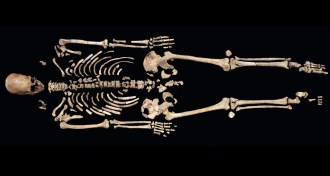 Anthropology
AnthropologyKennewick Man’s bones reveal his diet
Pacific Northwest man who lived 9,000 years ago ate from an almost entirely seafood menu, a new analysis finds.
By Bruce Bower -
 Health & Medicine
Health & MedicineOlder moms may have options to reduce newborns’ risks
Although babies born to older mothers face a higher danger of congenital heart defects, exercising moms may offset this added risk, a study in mice shows.
By Nathan Seppa -
 Materials Science
Materials ScienceSuds turn silver nanoparticles in clothes into duds
Bleach-containing detergents destroy antibacterial silver nanoparticles that coat clothes.
By Beth Mole -
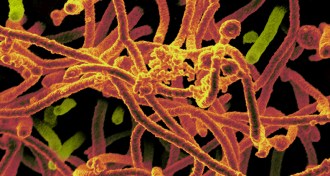 Genetics
GeneticsEbola virus not mutating as quickly as thought
The virus causing the current Ebola epidemic in West Africa is not evolving as quickly as some scientists had suggested.
-
 Psychology
PsychologyLong-term study complicates understanding of child abuse
Sexual abuse and neglect get reported more if parents were maltreated as kids, which may lead authorities to overestimate some children’s risk of abuse.
By Bruce Bower -
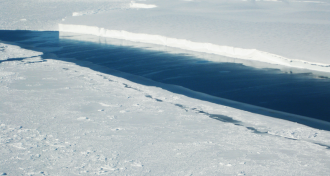 Climate
ClimateAntarctic ice shelves rapidly melting
Melting around Antarctica is accelerating, with several ice shelves projected to vanish entirely within 100 years.
-
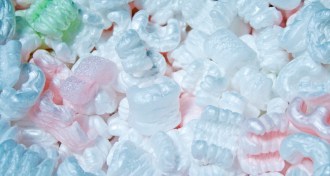 Chemistry
ChemistryIdea for new battery material isn’t nuts
Baking foam peanuts at high heat can form wee structures that lure lithium ions and could make for cheaper, more powerful batteries.
By Beth Mole -
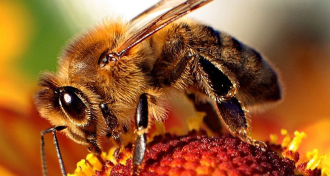 Environment
EnvironmentManganese turns honeybees into bumbling foragers
Ingesting low doses of the heavy metal manganese disrupts honeybee foraging, a new experiment suggests.
-
 Health & Medicine
Health & MedicineClean-up gene gone awry can cause Lou Gehrig’s disease
Scientists have linked mutations on a gene involved in inflammation and cell cleanup to ALS, or Lou Gehrig’s disease.
-
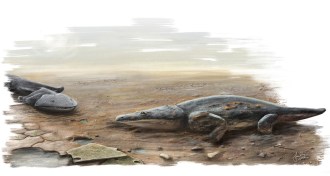 Paleontology
PaleontologyFossil of monstrous fish-eating amphibian unearthed
A new Triassic species of giant amphibian lived like a crocodile instead of like its cute little salamander and frog relatives of today.
By Susan Milius -
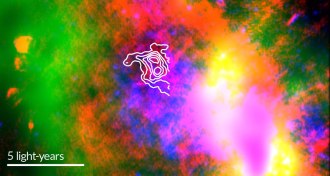 Astronomy
AstronomySpace dust is tough enough to survive supernova aftermath
Dust still lingers in the remnants of supernova that exploded 10,000 years ago, affirming that the explosions filled the early universe with dust.